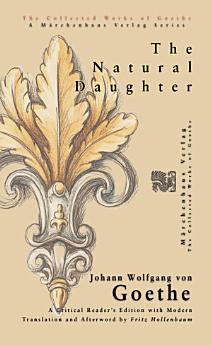The Natural Daughter
About this ebook
Published by Cotta in Tübingen in 1803, Die natürliche Tochter adapts the memoirs of Stéphanie de Bourbon-Conti, an aristocrat displaced by her birth status. Eugenie, the titular daughter, is exiled after her duke father acknowledges her, exposing the fragility of legitimacy in a society obsessed with bloodline. Blank verse heightens the tension between personal desire and public duty, structurally echoing Sophoclean tragedy while thematically recalling Schiller’s Maria Stuart (1800), where female figures embody political conflict. Goethe’s setting—an unnamed kingdom evading direct French parallels—universalizes the struggle between tradition and chaos.
Critics often note the play’s cerebral coldness, yet its power derives from subtext: Eugenie’s forced monastic vows symbolize the Revolution’s suppression of individuality, while court intrigues dissect how institutions manufacture consent. As a fragment of Goethe’s unrealized epic cycle, the drama captures his late-life pessimism, suggesting that historical forces crush intimate lives. Its endurance lies in asking whether identity is inherited or forged—a question dissected with poetic precision that transcends its immediate political moment.
This critical reader's edition offers a modern translation of the original Fraktur manuscript (the old German script) to help curious readers delve into Goethe's works. It uses clear, contemporary language and straightforward sentences to illuminate his complex ideas. The edition includes supplementary material that provides autobiographical, historical, and linguistic context for this eighteenth-century work. This material includes an afterword by the translator that discusses Goethe’s history, impact, and intellectual legacy, as well as an index of the philosophical concepts he explored, with a focus on Romanticism and Classicism. Also included are a comprehensive chronological list of his published writings and a detailed timeline of his life, highlighting the personal relationships that profoundly influenced his philosophy.











